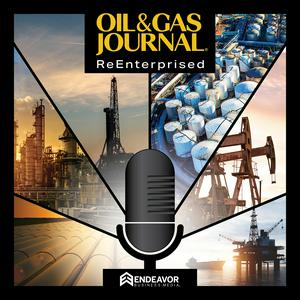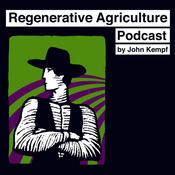42 episodes
- In this Insights episode of the Oil & Gas Journal ReEnterprised podcast, Head of Content Chris Smith updates the evolving situation in Venezuela as the industry attempts to navigate the best path forward while the two governments continue to hammer out the details.
The discussion centers on the new legal frameworks being established in both countries within the context of fraught relations stretching back for decades.
Want to hear more? Listen in on a January episode highlighting industry's initial take following the removal of Nicholas Maduro from power.
References
Politico podcast
Monaldi Substack
Baker webinar
Washington, Caracas open Venezuela to allow more oil sales Insights: Upstream studies that matter—from proppant design to resource size and methane reality
2026/2/03 | 41 mins.In this Insights episode of the Oil & Gas Journal ReEnterprised podcast, Alex Procyk, Upstream Editor, recaps four recent technical papers shaping today’s upstream decisions. He looks at how lightweight and ultralight proppants are influencing fracture performance and gravel-pack stability, why updated data show the Marcellus continuing to expand without signs of productivity loss, and how airborne monitoring offshore Angola is exposing gaps in reported methane emissions.
The episode is a practical walkthrough of what the latest research means for completion design, resource expectations, and environmental oversight.
Article references
If you’d like to dig deeper, the full articles are available with your membership on OGJ.com.
Marcellus assessment shows continued expansion [Free - Members Only]
New assessment suggests substantial Appalachian shale gas resources [Premium]
Lightweight proppants improve completion [Free - Members Only]
Airborne Angolan methane monitoring reveals discrepancies [Free - Members Only]- In this Insights episode of the Oil & Gas ReEnterprised podcast, OGJ Head of Content Chris Smith talks with Bob Crossen, Vice-President of Content Strategy for the Water and Energy Groups of Endeavor Business Media, about the latter’s first trip to the world’s largest oil and gas trade show: Abu Dhabi International Petroleum Exhibition & Conference (ADIPEC).
Conference themes discussed as they relate to the year ahead include the shift from automation to autonomy, AI, the energy addition, and sustainability. - In this Insights episode of the Oil & Gas Journal ReEnterprised podcast, Oil & Gas Journal Head of Content, Chris Smith, talks about the issues shaping what happens next in Venezuela now that Nicholas Maduro has been removed from power.
An oversupplied crude market, deep infrastructural needs, and in-country political uncertainty are only a few of the problems to be addressed.
But there are also opportunities, particularly if progress can begin quickly. This episode was based on and expanded from an OGJ article written by Conglin Xu, Managing Editor - Economics. - In this, the final Oil & Gas Journal ReEnterprised podcast episode of 2025, Mikaila Adams, managing editor, along with a team of OGJ editors, walks readers through content that most captured readers’ attention throughout the year.
In this episode, you’ll hear short recaps of this year's most-read content from OGJ.com...shared in our editors’ own words...with thoughts to carry into 2026.
Give it a listen...you don't know what you may have missed!
References
Laura
2024 Worldwide Reserves/Production tables
2025 Worldwide Reserves/Production tables
Conglin
2025 Forecast & Review webinar
2026 Forecast & Review webinar (REGISTER TODAY!)
Geert
Aethon president: Natural gas needs to top $5 to spur Haynesville investment
Mikaila
TGNR adds East Texas gas assets in $525-million deal with Chevron
Chris
Venture Global withdraws Delta LNG from pre-filing to focus on Plaquemines expansion
Alex
Shell starts oil production from deepwater Gulf of Mexico Whale development
Shell designed Vito development for present deepwater economics
Chevron Anchor pioneers 20K subsea development
More Science podcasts
Trending Science podcasts
About Oil & Gas Journal ReEnterprised
The Oil & Gas Journal ReEnterprised podcast addresses issues facing the petroleum industry in a way that highlights its transformation in light of the energy transition to a net-zero carbon future, as well as the ongoing evolution to a more inclusive and equitable society.
With in-depth perspectives from OGJ editors and guests from all facets of the business, the podcast will explore and discuss the ways operators, service companies, and their employees from this historically very traditional industry are working through and finding solutions to these more progressive, nontraditional issues.
Podcast websiteListen to Oil & Gas Journal ReEnterprised, Hidden Brain and many other podcasts from around the world with the radio.net app

Get the free radio.net app
- Stations and podcasts to bookmark
- Stream via Wi-Fi or Bluetooth
- Supports Carplay & Android Auto
- Many other app features
Get the free radio.net app
- Stations and podcasts to bookmark
- Stream via Wi-Fi or Bluetooth
- Supports Carplay & Android Auto
- Many other app features


Oil & Gas Journal ReEnterprised
Scan code,
download the app,
start listening.
download the app,
start listening.




























